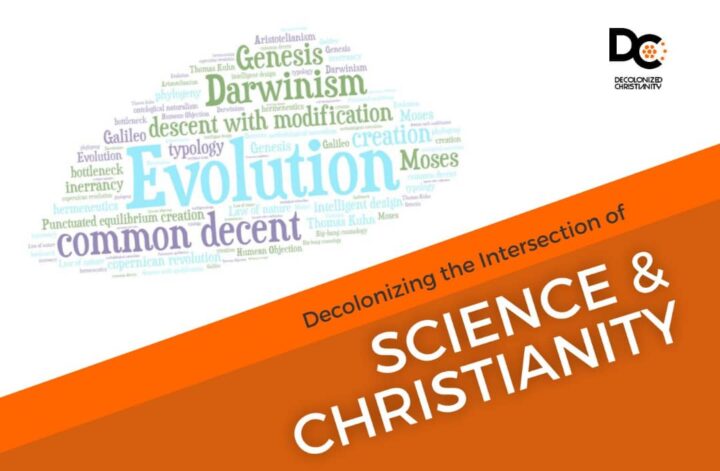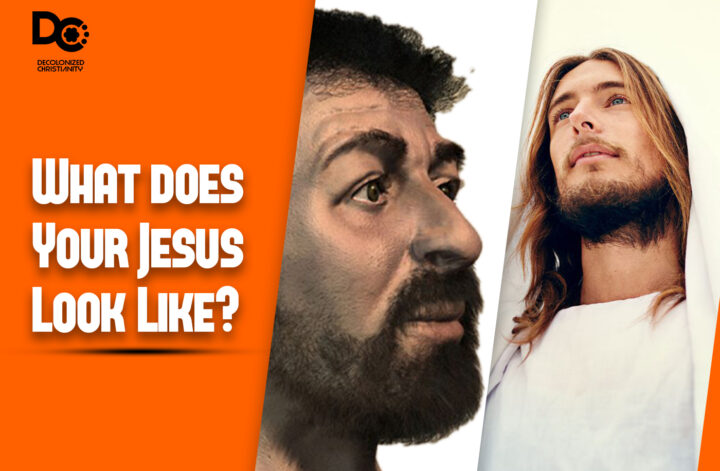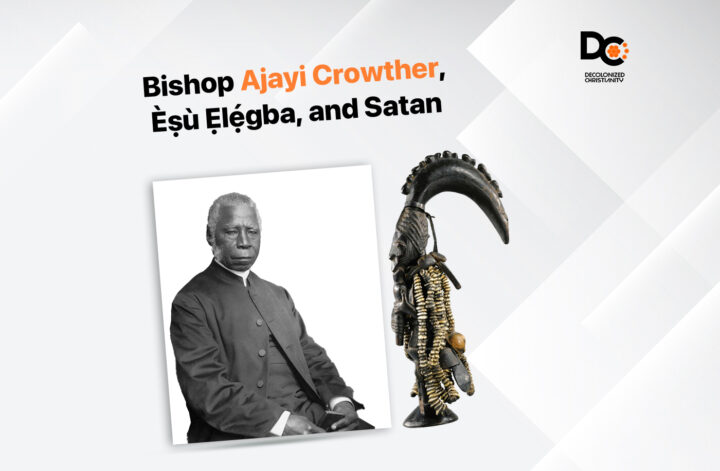Eurocentricity infects every pillar of society in much of Sub-Saharan Africa. Sometimes, the presence of eurocentrism is subtle and hence difficult to detect. Such is the relationship between African Pentecostal Christians and science, as this blog series will elucidate. But, first, let us sketch the history of how eurocentricity infested African Pentecostalism.
Africans embraced Christianity along with the foremost Apostles of Jesus from the very beginning. When Europeans introduced the faith to sub-Saharan Africa, however, they mixed it with European politics. The earliest missionary attempts in sub-Sahara Africa focused on commerce and slaves than they cared to preach Jesus. By the 19th century, European missionary works in Africa were a competition between Catholicism and Protestantism. The indigenes who inherited this fragmented faith often also embodied the interdenominational rivalries which existed among their European counterparts. Reverend Anthony Erhueh writes (84):
When Christianity first came to Africa, it brought with it some of the divisions it already incurred in Europe. Thus in Uganda, for instance, there was open hostility between Christians converted by French-speaking missionaries and those converted by English-speaking ones. The wars between Protestants and Catholics in Uganda and other less violent confrontations between Christians of various denominations in different parts of the continent did not promote the ideal Christian love and unity that are the core of the Christian message.
So, Ugandans received a corrupted faith that turned them against one another and caused them to redefine their identities in terms of denominational loyalty.
The 20th century saw the rise of independent African Churches which sought to shed European shackles from the faith. These sub-Sahara-Africa-originated churches rejected European missionaries’ rejection of polygamy and the insidious and arbitrary European requirement that African men divorce all their wives except one before they would be admitted into the faith. Adewale Ogunrinade et al write (129):
The African independent churches ‘protested the shabby and undignified treatment given to Bishop Ajayi Crowther and the Nigerian Delta pastorate, and the hostile treatment meted out to Bishop James Johnson by the English clergy. Other reasons included the enforcement of monogamy on the members of the church and the order to divorce second or third wives as a pre-condition to receiving the Holy Communion.
This era witnessed other changes, including the first use of traditional musical instruments and Africa-compatible forms of worship in church services. Even the Catholic church parishes in Africa would soon join in. The churches prioritized prayer and fasting. Many scholars believe this era marks the beginning of Pentecostalism in sub-Sahara Africa.
African independent churches differed in what they believed, especially about the sufficiency of the Holy Bible. They all believe the Holy Bible is critical to life. While some profess the Bible as the only authentic conveyor of divine revelational knowledge, others believe there are other valid sources of useful knowledge. Many of the churches sought to combine native metaphysics with that received from European missionaries. Even within these subgroups, there are differences.
The most influential churches in Africa today are, by far, the so-called non-denominational Pentecostals. With an origin in African Christians’ plight to shed excessive eurocentrism, many Pentecostals today have since surrendered to foreign ideals—especially American prosperity gospel and Word of Faith movements. Below are some issues reminding us that eurocentricity yet thrives in Africa.
The State of Israel
The story of how some people within American Evangelicalism became convinced that they are a special breed with a mandate, often political and military, assignment to the world is fascinating. Suffice that to say that pre-millennialist American Evangelicals played critical roles in the creation of the modern State of Israel. Geopolitics aside, these American premillennialists had theological reasons for backing the establishment of Israel in 1948. Frances Fitzgerald writes (477):
One of the key signs of the end times had always been the return of the Jews to Palestine or the land given by God to Abraham. The creation of the state of Israel had been seen as a first step toward the fulfillment of prophecy, and Israel’s annexation of the West Bank and the Old City of Jerusalem during the 1967 War was seen as the second.
These American Evangelicals eschatologically believed that they could hasten Jesus’ return to fix the world’s mess if the descendants of Jacob occupied Jerusalem again. The United States, under the influence of premillennialist Evangelicals, was prepared to remove all obstacles on the way to achieving this feat. Though premillennialism is only one of several Christian eschatological views, the United States government threw its military weight behind the establishment of Israel. And since its establishment, Israel has rarely done anything wrong—in the eyes of the US. Sub-Saharan African Pentecostals echo this sentiment. Among Nigerian Christians, for instance, no matter what the geopolitical details are, Israel is rarely in the wrong. This is strange considering that biblical Israel did wrong times and times again, leading one to wonder why this modern secular state of Israel is different. Almost certainly, this is a mere reflection of the influence of American Evangelicals on Nigerian churches. The weird thing is that America has much to gain, material and political, from its policies in the Middle East. Africa has zero to gain from uncritical support for US policies in the Middle East.
The Trumpean Phenomenon
Perhaps nothing in recent history better shows the influence of America’s Evangelicalism on sub-Saharan African Christianity than the popularity of Donald Trump among African Christians. For all his racist outbursts and condescending views of Africa, Donald Trump was insanely popular in Africa. When I probed Trump’s supporters in Nigeria, I soon found a connection.
Virtually all influential Nigerian Pentecostal churches are patterned after some American Evangelical churches. The American archetypes include the ministries of Billy Graham, Kenneth Hagin, Kenneth Copeland, and Bill Johnson. All these ministries are not only staunch supporters of the Republican Party, but they also believe the Party to be essentially Christian and doing God’s work in the world. Billy Graham mightily helped to merge Republican politics and Christianity in an unholy union.
So, for all the Christian virtues that Trump does not embody, Nigerian Christians overlooked the conspicuous lack of spiritual fruit or character. Like Republican politicians, they did this because the GOP endorsed Trump, and the Party, of course, was Jesus’ special instrument in the world. Republican politics is popular among Nigeria Christians largely because of its merger with American Evangelicalism.
Ungodly Science
The intersection of science and faith is yet another area where American Evangelicalism exerts considerable influence in Africa. It is no surprise that Nigerian churches, for instance, mirror Conservative Americans almost perfectly in their evaluations of the place of science. In Nigeria, as in Conservative American spaces, there is an ever-present God-versus-science mindset that unwisely sets up science as God’s enemy. Since many today cannot live without the fruits of science, these Christians are selective about what aspects of science they repudiate. And, predictably, they reject the parts of science that herald news contradictory to what they believe the Bible says on a matter.
But it is crucial to note that, in Anglo-American history, the triad of politics, religion, and science was locked in a battle for supremacy, and history informs much of what we observe in those places today. While there are indeed towering scientists who are explicitly anti-Christianity and would use their works to communicate their stance, science itself is not. Similarly, some Christian scientists make inaccurate proclamations in the name of science; this too is just as problematic. Properly understood, science is a neutral tool. In this series, I shall explore the intersection of science and faith, hoping to expose more African churches to the rich options within Christianity’s 2000-year heritage.
Works Cited
Erhueh, Anthony. “The Contribution of Christianity to Politics in Nigeria: A Historico-Theological Overview.” Bulletin of Ecumenical Theology, vol. 2, no. 1, 1989, pp 84-88.
Ogunriande, Adewale O and Ogbole Friday Abu. “Christianity in Nigeria before Pentecostalism.” Academic Journal of Interdisciplinary Studies, vol. 2, no. 2, July 2013, pp 121-130.
Fitzgerald, Frances. The Evangelicals: The Struggle to Shape America. Simon and Schuster Paperbacks, 2017.




